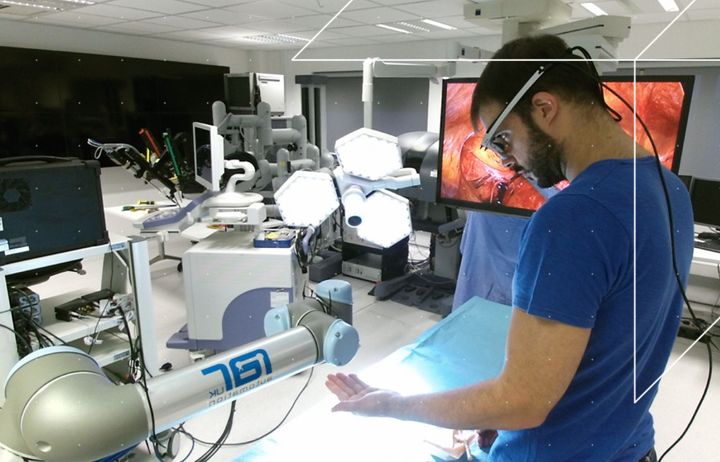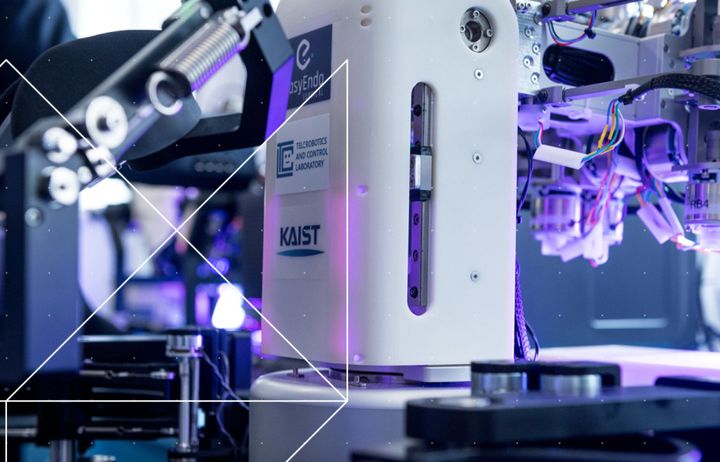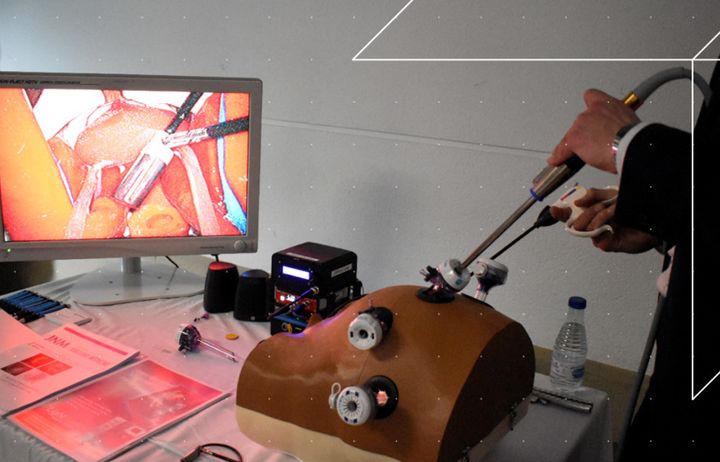Technology is bringing transformational improvements in health and care. From helping to prevent illness through devices like wearables, to more accurate diagnostic techniques and better, kinder treatments, technology is helping to solve many pressing health challenges across the world.
Our research is helping to accelerate progress in this exciting field by developing safe, effective and accessible technologies that can benefit people all across the world. Core to realising this progress in healthcare technology is our Hamlyn Centre, which focuses on technological innovation with a strong emphasis on clinical translation, resulting in direct patient benefits with global impacts.
Explore a range of our projects to find out how we’re continuing to harness the power of health tech to reshape the future of healthcare.
Highlights from our work in health tech

Xbox tech for safer surgery
With the aid of Xbox Kinect technology, our researchers are developing perception-enabled systems to make surgery safer. Coupling robotics with 3D room mapping, motion capture and gaze tracking, our HARMS lab is working on an intelligent system that aims to ease the burden on surgical teams, for example using robotic scrub nurses that can assist with certain tasks. The system also tracks patterns of behaviour for analysis, such as detecting signals of fatigue, which could help prevent errors by triggering alerts or prompting an intervention.
The team is also applying this framework to develop a robotic system, controlled through a person’s eye movements, which could assist with daily activities for people with severe disability, helping them regain a degree of independence.
Would you trust a robot surgeon?
Robots have been helping surgeons to operate on people since the late ‘90s. Their fine, agile instruments enable surgeons to carry out complex and delicate procedures which wouldn’t ordinarily be possible without assistance.
Although these surgical robots have come a long way since their inception, fully autonomous robots that operate independently remain in the realm of science fiction, with many technical, legal and ethical challenges in the way of this becoming reality. For now, they remain under the control of surgeons. Research from the HARMS lab at our Hamlyn Centre aims to improve the way that these robots interact with surgeons, creating 'smart' systems that can help make surgery safer and more precise. Find out more about our research and the history of surgery in this animation.
Get in touch
Perception-enabled technologies
Dr George Mylonas, Lecturer in Robotics and Technology in Cancer
Optical technologies and sensing
Dr Alex Thompson, Lecturer in Sensing in Cancer
Medical imaging
Prof Dan Elson, Professor of Surgical Imaging
Wearable devices for nutrition
Dr Benny Lo, Senior Lecturer
Dr Modou Jobarteh, Research Associate in Nutrition and Dietetics





